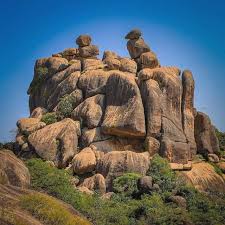In this captivating feature, YVONNE ISHOLA paints a vivid picture of Plateau State as one of Nigeria’s most beautiful but underutilised tourist havens. With its crisp mountain air, rolling green hills, majestic rock formations and welcoming people, Plateau has long been admired for its clement weather and natural endowments. From historic landmarks like Wase Rock and Shere Hills to breathtaking waterfalls, fertile farmlands and vibrant cultural heritage, the state embodies its slogan as the Home of Peace and Tourism. Yet, as Ishola explores, beyond its scenic beauty lie stories of resilience, opportunities for economic growth through tourism, and the urgent need for government and private investors to tap into its immense potential
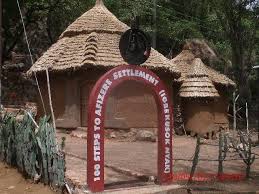
One of the first things you notice on approaching Plateau State is the gush of fresh air that gently caresses you. You can’t miss it because it is very unique to the state. You do not experience this in any other part of Nigeria. And as one breathes in the fresh air, one’s eyes are captivated by rock formations on every side, carpeted with lush green grasses, a testament to its fertile soil. In some of the valleys found among the abundant rocks run waterfalls, streams or springs.
The waterfalls are part of Plateau’s tourist attractions. Places like Assop Falls and Kurra Falls are very popular tourist destinations, and the springs, like the one found in Kerang, are the source of water for the popular Swan Water—bottled water synonymous with Plateau State.
Ever wondered why the state’s slogan is Home of Peace and Tourism? With its breathtaking natural scenery, rich cultural heritage and pleasant weather, Plateau is a haven for tourists and a melting pot of over 40 unique ethnic groups with unique customs and traditions.

Stories of people who fell in love with Plateau
Late General Iyoda, on a good day while playing golf, said: “I fell in love with Jos the first time my set was in Jos for our mandatory military training while still at NDA. I and most of my course mates vowed to settle in Jos after we made it.”
And he and a handful of the men kept their promise. He built a mansion in Rayfield, Jos, and relocated his family while still in service, even though he was from Benue State.
The mother of a Nigerian actress who had relocated to the USA and started her family there said that when it was time to come back home, she had to find out which city had the weather closest to where they were coming from. And Jos was the only city she knew that had clement weather. That was how they became Josites.
According to Mrs Odinga, an Economics teacher: “Plateau State’s population has been growing in droves because of its clement weather, the hospitality of its people, its natural endowment, fertile soil and the availability of some rare foods and fruits like hungry rice, Irish potatoes, cucumba, beetroot, carrots, green beans, peas etc, at affordable prices.”

Odinga explained that it is the reason youth corps members posted to Plateau State often refuse to go back to their states because it is a blessed state.
This brings to mind the story of Emeka, a corps member posted to Kalong village, Shendam Local Government Area. After his mandatory one-year service, he refused to go back. Who would blame him? The villagers treated him as their own son. They would not allow him to buy food. The house where he was renting fed him like one of them.
If he visited any house, even if he left before their dinner was ready, they would follow him with his own share. The village chief took him under his care, and provided him with large tubers of yams every now and then.
As if that was not enough, he was given a plot of land where his students cultivated yams, beans, corn and millet, among others, for him. Unfortunately, before he could harvest in his second year, his parents came for the prodigal son.
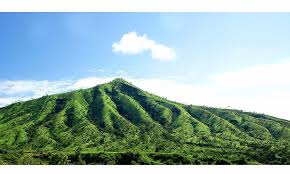
Andrias Ibrahim, who told the story, said: “I took responsibility of the farm, harvested his farm and sent the bountiful harvest to him at Kaduna, where he resides.”
Ibrahim said that was not the first time they were handling cases of youth corps members who came to serve but refused to go back after the mandatory one year. “There was this young corper who became a successful farmer and even ended up marrying one of our daughters. It took the grace of God to get that one to go back home. But after one crisis in Jos, his family, who thought he might be in danger, sent a delegation that came down to the village and bundled him up, along with his wife, amid tears,” Mr Andrias Ibrahim disclosed.
Natural and cultural attractions
During a recent workshop in which Plateau State Government collaborated with L-PRES for some state civil servants at Crispin Hotel, Jos, one of the resource persons, Mrs Badamas, who came in from Abuja, confessed Jos is her favourite destination in the whole of Nigeria. Referring to the state’s scenic beauty, she said: “My advice to people who wish to travel abroad but can’t make it due to paucity of funds is to just travel to Jos, and it will be okay because of its cold weather and scenic beauty.”
The problem with Plateau residents, she added, is that “Nothing we see in nature that is ours,” as William Wordsworth pointed out in his poem, The World is Too Much with Us.
These are some of the state’s internationally renowned tourist attractions:
Wase Rock
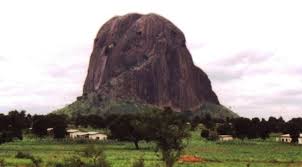
A massive dome-shaped rock standing 298 meters high near Wase town, Wase Rock is a remarkable geological formation. It is one of only five isolated volcanic plugs of its kind in the world. The rock’s unique shape and size make it a notable landmark, visible from a distance of about 40 kilometres away.
The rock is home to various animals, including rare Rosy White Pelican birds, Fox Kestrel, Stone Partridge and over 200 bird species. Farmers graze animals nearby, while the Plateau State Government has designated a 321-hectare area around it as a wildlife sanctuary. It holds cultural significance for the Mwaghavul and Pyem people and once served as a protective shield during conflict.
Shere Hills
Located 10 kilometres east of Jos, Shere Hills is a stunning range of undulating hills and rock formations. Rising to 1,829 metres above sea level, it is Nigeria’s third-highest point. The hills are a hub for hiking, climbing, abseiling and camping. They are home to rare flora and fauna, ancient rock paintings, and the Citizenship and Leadership Training Centre, used for adventure and military training.
Waterfalls, museums
Assop Waterfalls, about 40 km from Jos, is a picturesque site for hikers and picnics. Kurra Falls offers a series of cascades for relaxation. The Jos Museum showcases Terra Cotta Sculptures of the Nok Culture, while Naraguta Leather Works remains a hub of craftsmanship.
Government efforts, tourism challenges
Despite Plateau’s sobriquet, Home of Peace and Tourism, the state has faced conflicts between farmers and herders. But recently, Governor Caleb Mutfwang assured journalists he is working hard to make Plateau a destination for medical tourism.
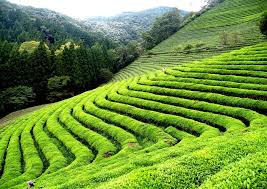
Last December, Plateau hosted a Christmas programme at the 10 Commandments, Dong. Gospel artists from across Nigeria participated, while Tin City Metro buses offered free transportation. It was televised on the state-owned PRTVC and other networks nationwide. It brought an unprecedented number of youth back to Jos. Governor Mutfwang promised that this year’s funfair will be even bigger, with international gospel artists.

However, residents like Patrick Lamar and Ripji say more must be done. Waste management remains poor, while abandoned projects such as Rock Hotel at Lamingo, Rayfield chalets and the Amusement Park require urgent attention. Security also remains a priority.
A security officer cautioned that herder attacks against farming communities discourage visitors and investors. Hakeem Ishola urged government to complete abandoned projects and chalets at Rayfield Resort, saying: “Plateau State has more to gain than lose in completing abandoned projects like Rock Hotel, Zaria Road Stadium, and Legacy Projects of former Governor Lalong. They are more of an eyesore if left abandoned.”
G
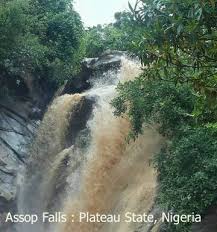
overnor Mutfwang has received praise for reviving Plateau Hotel, Hill Station Hotel, Jos Wildlife Park and giving facelifts to state-owned facilities.
Experiencing Plateau
A group of bikers who visit Plateau every December described Jos as “simply breathtaking,” while Mr Titus Kwal highlighted the scenic views at Kwanan Maciji between Pankshin and Kanke, and on the road to Shendam via Panyam.
The general consensus is that Plateau can reclaim its place as the Home of Peace and Tourism by developing its many natural attractions like Shere Hills, Pandam, Wase Rock, Kurra Falls, Assop Falls and Pankshin Hills. By following the model of Obudu Cattle Ranch and Israel’s tourism industry, Plateau can turn its abundant beauty into a major source of revenue.
With its cool climate, scenic landscapes and warm people, Plateau offers a unique blend of relaxation, gastronomy and heritage. Visitors can enjoy hiking, rock climbing, wildlife viewing and cultural experiences in a friendly environment. All they have to do is visit Jos.
